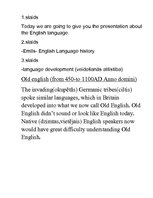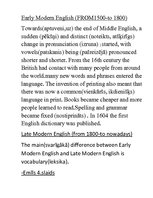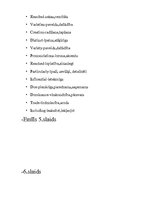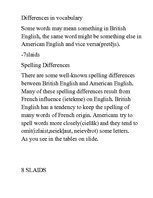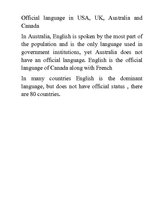-
English Language
Old English (450-1100 AD)
The invading Germanic tribes spoke similar languages, which in Britain developed into what we now call Old English. Old English did not sound or look like English today. Native English speakers now would have great difficulty understanding Old English. Nevertheless, about half of the most commonly used words in Modern English have Old English roots. The words be, strong and water, for example, derive from Old English. Old English was spoken until around 1100.
Middle English (1100-1500)
In 1066 William the Conqueror(uzvarētājs), the Duke(hercogs) of Normandy (part of modern France), invaded(okupēja) and conquered (iekaroja) England. The new conquerors (called the Normans) brought(atnesa,piegādāja) with them a kind of French, which became the language of the Royal Court, and the ruling and business classes. For a period there was a kind of linguistic class division(iedalījums), where the lower(zemākais) classes spoke English and the upper (virsējā) classes spoke French. In the 14th century English became dominant in Britain again, but with many French words added. This language is called Middle English. It was the language of the great poet Chaucer (c1340-1400), but it would still be difficult for native English speakers to understand today.…
The history of the English language really started with the arrival of three Germanic tribes who invaded Britain during the 5th century AD. These tribes, the Angles, the Saxons and the Jutes, crossed the North Sea from what today is Denmark and northern Germany. At that time the inhabitants of Britain spoke a Celtic language. But most of the Celtic speakers were pushed west and north by the invaders - mainly into what is now Wales, Scotland and Ireland. The Angles came from Englaland and their language was called Englisc - from which the words England and English are derived.











